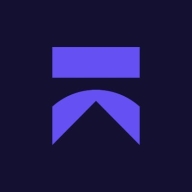

SonarQube Cloud and Aikido Security are competing products in the domain of code analysis and security testing. Aikido Security seems to have the upper hand due to its robust features and advanced security capabilities.
Features: SonarQube Cloud offers continuous code quality analysis, seamless integration with popular CI/CD systems, and broad programming language support. Aikido Security provides advanced threat detection capabilities, extensive vulnerability management, and in-depth security features.
Ease of Deployment and Customer Service: SonarQube Cloud provides straightforward cloud-based deployment with quick setup and responsive customer service. Aikido Security offers a robust deployment process that may require more technical expertise initially and thorough customer support.
Pricing and ROI: SonarQube Cloud has budget-friendly pricing with good ROI from efficient code analysis and integration features. Aikido Security involves a higher setup cost but delivers significant ROI through detailed security insights and robust threat prevention measures.

Aikido Security is an efficient platform for developers, providing a clear overview of code-to-cloud security issues and guiding fast vulnerability resolution.
Aikido Security serves over 6,000 teams with features like instant results and false positives reduction, making it a preferred choice for non-enterprise SaaS businesses with 10-500 developers. Its product-led growth strategy includes a freemium offering, appealing to developers who prefer self-testing before purchasing. Aikido's solution centralizes 11 scans covering the entire SDLC, offering robust security management catered to developers' specific needs.
What are the important features of Aikido Security?
What are the key benefits or ROI?
Aikido Security is implemented effectively in SaaS industries, enabling engineering teams to manage security with limited budgets while focusing on rapid product development. Its comprehensive yet simple solution addresses the unique pain points of growing tech companies.
SonarQube Cloud offers static code analysis and application security testing, seamlessly integrating into CI/CD pipelines. It's a vital tool for identifying vulnerabilities and ensuring code quality before deployment.
SonarQube Cloud is widely used for its ability to integrate with tools like GitHub, Jenkins, and Bitbucket, providing critical feedback at the pull request level. It's designed to help organizations maintain clean code by acting as a quality gate. This service supports development methodologies including sprints and Kanban for ongoing vulnerability management. While appreciated for its dashboard and integration capabilities, some users find initial setup challenging and note the need for enhanced documentation. The recent addition of mono reports and microservices support offers deeper insights into security and code quality, though container testing limitations and false positives are noted drawbacks. Manual intervention is sometimes required to address detailed reporting, with external tools being necessary for comprehensive analysis. Notifications for larger teams during serious issues and streamlined integration of new features are also areas of improvement.
What are the key features of SonarQube Cloud?In specific industries, SonarQube Cloud finds application in finance and healthcare where code integrity and security are paramount. It allows teams to identify critical vulnerabilities early and ensures that software development aligns with industry regulations and standards. By continuously analyzing code, it aids organizations in deploying secure and reliable applications, fostering trust and compliance.
We monitor all Static Application Security Testing (SAST) reviews to prevent fraudulent reviews and keep review quality high. We do not post reviews by company employees or direct competitors. We validate each review for authenticity via cross-reference with LinkedIn, and personal follow-up with the reviewer when necessary.